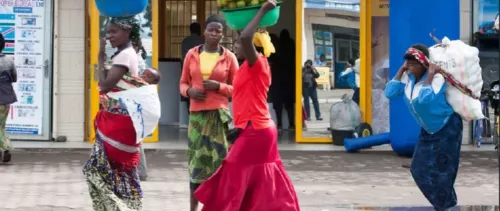
WBG
Thought Leadership and Fresh Insight from the World Bank’s Digital Development Practice
COVID-19 and the related lockdown measures to prevent the virus’ spread have highlighted how important it is for everyone to have access to reliable and resilient digital infrastructure. Restrictions on movement have generated higher Internet usage and increased traffic on networks, reflecting an increase in remote working and learning, as well as other activities that have shifted online.
This article provides insight into the effect of COVID-19-related lockdown measures on internet speed in a sample of developing countries in Africa. The findings of this study demonstrate the resiliency of digital infrastructure in Africa and also highlight and reflect the benefits of partnership between public and private stakeholders to manage traffic surges. The development community should encourage and leverage these partnerships to not only ensure continued network resilience during times of crisis, but also to minimize the digital divide between countries and within countries as the new global digital transformation takes shape.
Key Findings
- Increase in internet usage – The COVID-19 pandemic and related lockdown measures have increased the amount of internet traffic around the world. Countries in Africa reflect this global trend, reporting higher data traffic during the months in which “stay at home” orders were established. However, this increase in traffic was not temporary; countries continue to reflect a surge in traffic compared to the pre-lockdown weeks.
- Public and private sector reaction – As a consequence of higher internet usage, public and private stakeholders have promoted a wide range of measures to facilitate access to the internet. For instance, some regulators have enabled temporary spectrum bands to meet the increase in demand while private operators have offered more affordable data plans.
- Internet speed is slow – The data recorded by Ookla® Speedtest® reported on average low mobile and fixed internet speeds across the 18 African countries surveyed. Even before the onset of the pandemic, speed was below the acceptable threshold of 10mbps, considered the lower bound for a good quality broadband service. In contrast to what might be expected in OECD countries, mobile internet generally provides faster service than fixed.
- Effect of the lockdown on internet speed was modest and temporary – Findings from the sample of 18 African countries indicates a negative effect of the lockdown on mobile (-17%) and fixed internet speed (-5%), particularly in the first week of lockdown. Some countries also experienced a decline before the “stay at home” orders, suggesting that some activities shifted to remote connectivity before the official lockdown mandates. However, networks across the continent reacted well.
- Public and private sector partnerships and cooperation was and remains critical for ensuring network resilience – The findings of this study demonstrate the resiliency of digital infrastructure in Africa and also highlight and reflect the benefits of partnership between public and private stakeholders to manage traffic surges. The development community should encourage and leverage these partnerships to achieve the ambitious objective of universal access to the internet.


